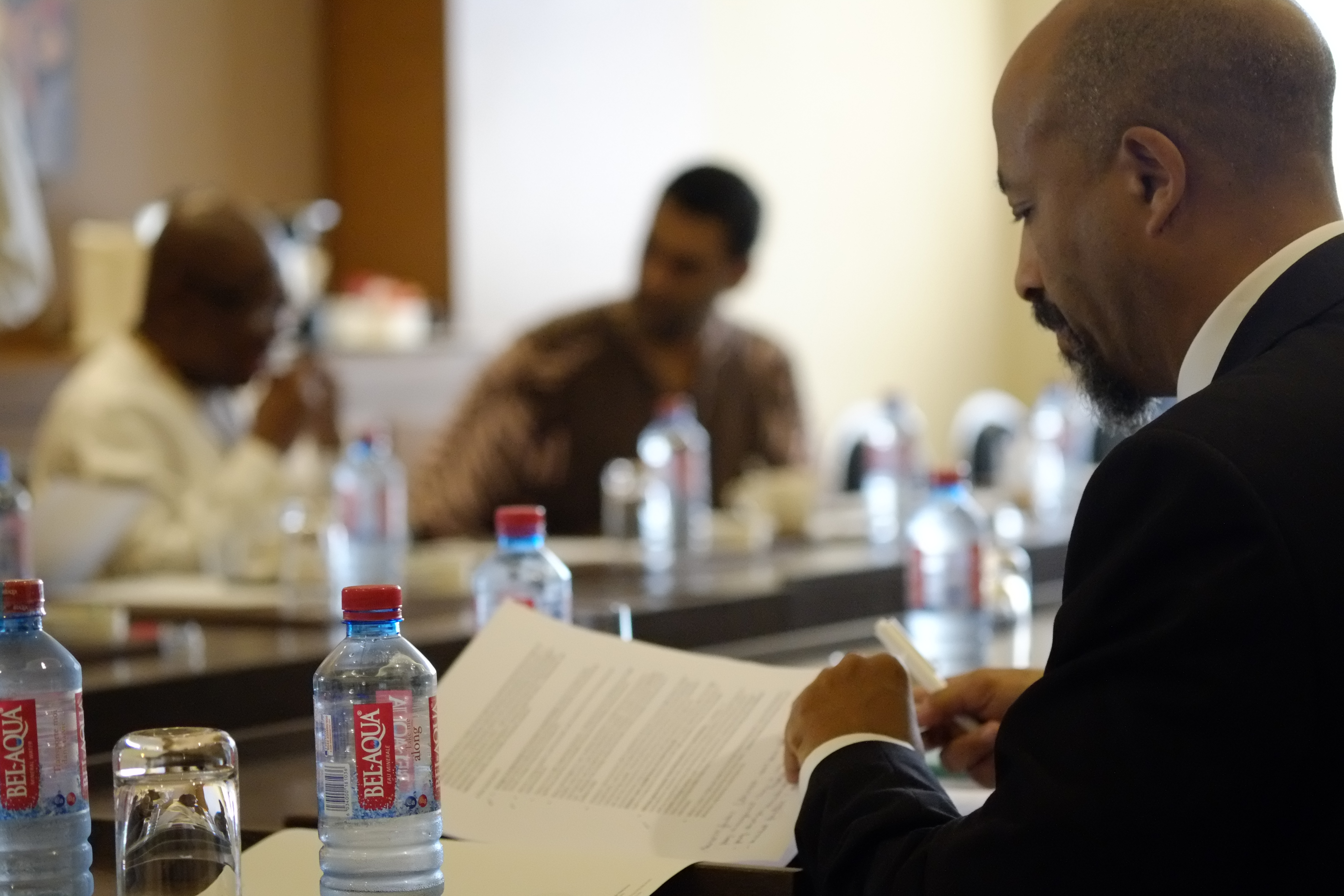The Mary Robinson Foundation – Climate Justice and the Mo Ibrahim Foundation co-hosted a Climate Justice Dialogue, focused on the necessary investment to end energy poverty, in the margins of the Mo Ibrahim Foundation’s Annual Governance Weekend on 22 November 2015.
Participant Yacob Mulugetta, Professor of Energy and Development Policy at University College London, succinctly summed up the two great and interlinked challenges facing Africa in the coming years that were discussed at the dialogue:
“None of the sustainable development goals can be achieved without energy, and all of the sustainable development goals will be impacted by climate change.”
Mr. Mulugetta was speaking at the Climate Justice Dialogue co-hosted by the Mary Robinson, President, Mary Robinson Foundation – Climate Justice and Mo Ibrahim, Founder and Chair of the Mo Ibrahim Foundation in Accra, Ghana, on Sunday morning.
The high-level event brought together five former Heads of State, three of them from Africa, and prominent leaders from a variety of backgrounds including civil society, academia and business, to discuss how a well governed energy transition that is inclusive of all people can be achieved.
Currently, there are some 640 million people living in Africa without access to electricity, a statistic Mrs. Robinson described as “intolerable”.
Energy is the engine of development. Recent research commissioned by the Mary Robinson Foundation – Climate Justice found that, in order to enable the right to development for all while simultaneously reducing carbon emissions to zero by 2050, it was necessary for wealthier countries to mobilise unprecedented levels of support for climate action in developing countries. This way all countries can transition to zero carbon societies on the same timescale. Supporting new and innovative sustainable energy projects across Africa will be critical to realising this transition.
Kumi Naidoo, Executive Director of Greenpeace International, spoke ofo the challenges of reaching all people, including those living in rural parts of Africa. “Whenever we think about energy, we think about centralised generation. We need to start thinking seriously about the potential of decentralised energy production and mini-grids”, said Mr Naidoo.
Dr. Akinwumi Adesina, President of the African Development Bank, spoke passionately about the need to ensure clean cooking facilities are made available for poor families throughout Africa.
“People must have access to clean cooking. Every year 600,000 people die [from indoor air pollution caused by cooking on open fires]. Fifty percent of these are women and fifty percent are children. If that continues, 6 million will die under my watch [as president of the African Development Bank]. That cannot happen” said Dr. Adesina.
Clare Short, former Secretary of State for International Development in the UK, called for a bottom up approach to deliver renewable energy “into the hands of the people” while at the same time developing the larger, top down, initiatives that would develop Africa’s power grid.
In concluding the meeting, Mary Robinson called on participants to think about targeted approaches to delivering energy access in order to ensure the poorest people benefit from the transition. She commended Dr. Akinwumi Adesina on his commitment to energy for Africa, and particularly his focus on access for those people in the most vulnerable situations.
The Mo Ibrahim Foundation’s Annual Governance Weekend took place in Accra, Ghana from 20 – 22 November 2015.
Related Links
Zero Carbon Zero Poverty the Climate Justice Way
The Mo Ibrahim Foundation Annual Governance Weekend
Meeting the energy needs of the poorest – a role for social protection
Climate change requires us to fundamentally rethink how we power our societies


